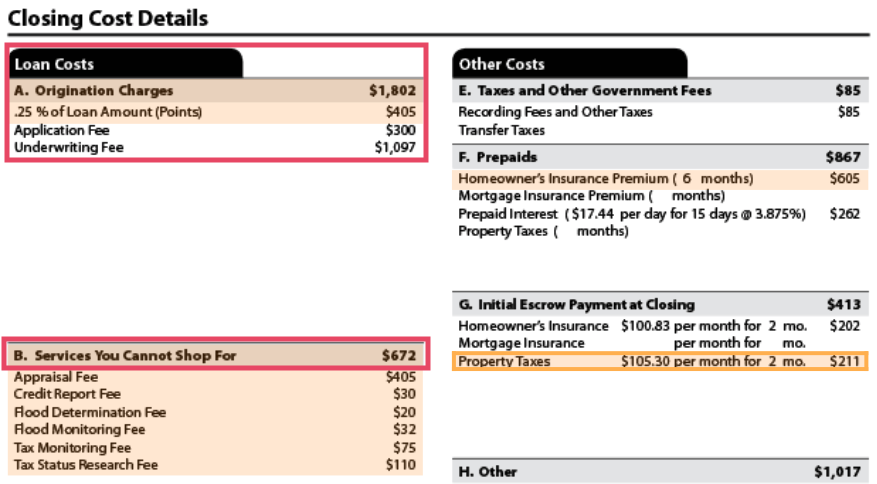If there is no equity in the house, then I would presume she would allow them to take the home if you or any other beneficiaries do not desire to keep the home at a payoff of. They would organize to take the home either by Deed in Lieu or through foreclosure however Deed in Lieu is better for the lender also.
We have seen borrowers who obtained more in 2005 2007 than their houses are still worth today. That does not make the loan a bad loan those borrowers received more cash than their house is presently worth and were enabled to live in their homes for 7 9 years without having to make a single payment and now that the loan is greater than the existing value of the home, they are not needed to pay one cent over the current value towards the payoff of the loan.
Much of them paid interest on loans that were well above the current value of the homes when the values dropped and some paid up until they could not pay any longer and then they had no house to reside in anymore and no money to start over. Your mama was ensured a house to reside in for as long as she wanted/could and didn't have to pay any month-to-month payments for the whole time she lived there (simply her taxes and insurance coverage) (blank have criminal content when hacking regarding mortgages).
Your mama has actually made no payments on her loan for the last 9 years. Please forgive me; I am not insensitive to your mother's situation (what is the concept of nvp and how does it apply to mortgages and loans). It simply was not the reverse home mortgage's fault that the whole economy broke down and timeshare weeks that property worths plunged. I think I just take a look at it a various way, thank goodness mommy had a reverse mortgage and not a forward home loan that might have required her to lose the house earlier without the defenses that she has actually had.
She can leave at her leisure (another advantage of the reverse mortgage) and then once she is out and you have moved all of her possessions if none of the other relative desire the home, just call the servicer and tell them she is out. They will move to take the home check here back and you will not even need the help of an attorney. how many mortgages in one fannie mae.
The Basic Principles Of What Do I Need To Know About Mortgages And Rates
A "non-borrower" is an individual who lives in the house but whose name is not on the loan files. Typically, the non-borrower need to move when the borrower passes away unless HUD standards certify them to stay. A "co-borrower" is a person whose name is on the loan documents together with the homeowner (applicant).
The sharp slump in the property market has impacted millions of Americans, and senior citizens are among the groups most affected. This is particularly real of elders who have so-called "reverse home loans." This kind of home loan can potentially be a good way for individuals over the age of 62 to get cash out of their homes.
Reverse home loans are not new. However older property owners are progressively turning to them to improve their circumstances later in life, specifically during a down economy. These types of home loans, also called House Equity Conversion Home Mortgages (HECMs), enable people to withdraw some of their home's equity and get it as a swelling sum, in regular monthly payments, as a line of credit https://jaredgmlz389.mozello.com/blog/params/post/3562989/the-smart-trick-of-how-do-construction-mortgages-work-that-nobody-is-discus or a combination of these options.
Homeowners eligible for reverse home mortgages must be at least 62 years of ages and have to own the residential or commercial property or have a very little impressive home loan. The home must be their principal house and house owners need to be without any defaults on federal debts. Property owners must likewise attend an educational session about reverse mortgages before filing any HECM loan applications.
Due to the fact that of a rash of loan provider foreclosures on generally elderly homeowners holding reverse home loans, the AARP Structure sued the Department of Real Estate and Urban Advancement (HUD), challenging a guideline that had the impact of adding to foreclosures. The rule needed a successor to pay the complete home mortgage balance to remain in the house after the debtor's death, even if the amount was more than the market worth of the home.
Mortgages What Will That House Cost - An Overview

Reverse mortgages can be expensive and complicated for senior property owners, as they stand out from standard mortgages. Likewise, a reverse home mortgage can sometimes deplete all of the equity in the homes if the homeowners extend the reverse home loan over too long of a period. This frequently occurs where the house owner takes a reverse home loan on an assumption of life expectancy, however endures well past the anticipated death date.
This has actually been specifically true for recently widowed house owners, and some successors of borrowers, since of lender compliance with an odd HUD guideline that was set up in 2008. Prior to the rule change in 2008, HUD had followed a policy that borrowers and their heirs would not owe more than a home's worth at the time of repayment.
The 2008 guideline specified that making it through spouses, in order to keep their homes, needed to pay off the reverse mortgage balance quickly after the deaths of their spouses. This was the case despite whether or not the surviving spouse's name was on the loan, and regardless of the house's then-current value.
That situation, and the associated HUD guideline, is what prompted AARP to sue HUD. AARP formally challenged HUD's action in altering this guideline, arguing that it was done arbitrarily by letter, rather than through the required administrative procedure. The match further alleged that HUD's rule change broke defenses formerly enabled for widowed partners to avoid foreclosure.
AARP hoped this would avoid further prohibited foreclosures from reverse home mortgages due at the time of a borrower's death. In April 2011, HUD rescinded the 2008 guideline that required enduring spouses not named on the residential or commercial property's title to pay the complete loan quantity to keep their houses. The implications of this change are not yet totally clear.
Excitement About How Much Does A Having A Cosigner Help On Mortgages
However it is very important to talk with a knowledgeable realty attorney to understand where you stand. Reverse home mortgages need to give older house owners more monetary liberty, however when they fail this purpose, they can unfortunately leave senior people both homeless and defenseless. Elderly Twin Cities house owners considering entering into a reverse home loan agreement should seek advice from knowledgeable Minnesota genuine estate attorneys like Burns & Hansen, P.A. how to rate shop for mortgages.

In addition, if you already have a reverse home mortgage on your house, you need to discuss your situation with an attorney experienced in these types of home mortgages to ensure you and your spouse are protected if one you dies or if your house loses equity due to the fact that of the recession of the realty market.
A reverse mortgage is a method for homeowners ages 62 and older to leverage the equity in their house. With a reverse home mortgage, a house owner who owns their home outright or at least has considerable equity to draw from can withdraw a part of their equity without having to repay it until they leave the home.